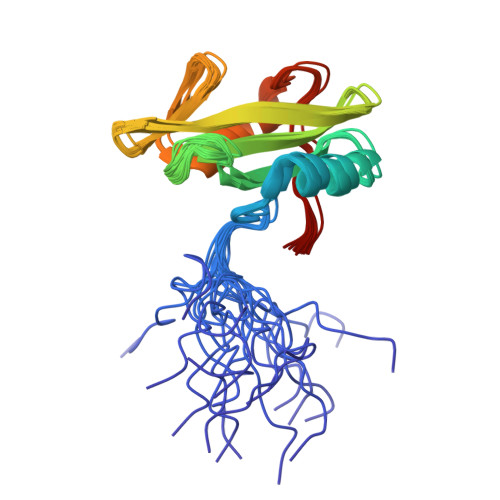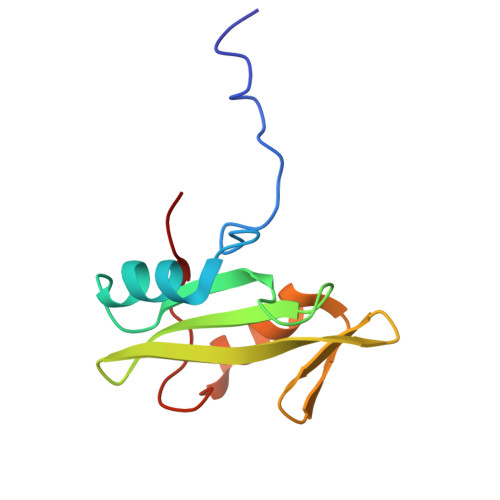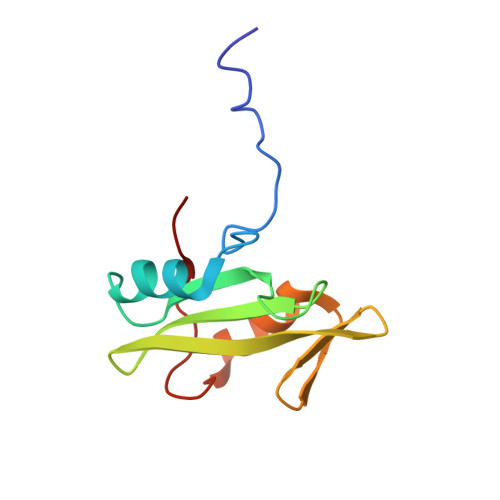A pre-metazoan origin of the CRK gene family and co-opted signaling network
Shigeno-Nakazawa, Y., Kasai, T., Ki, S., Kostyanovskaya, E., Pawlak, J., Yamagishi, J., Okimoto, N., Taiji, M., Okada, M., Westbrook, J., Satta, Y., Kigawa, T., Imamoto, A.(2016) Sci Rep 6: 34349-34349
- PubMed: 27686861
- DOI: https://doi.org/10.1038/srep34349
- Primary Citation of Related Structures:
2RVF - PubMed Abstract:
CRK and CRKL adapter proteins play essential roles in development and cancer through their SRC homology 2 and 3 (SH2 and SH3) domains. To gain insight into the origin of their shared functions, we have investigated their evolutionary history. We propose a term, crk/crkl ancestral (crka), for orthologs in invertebrates before the divergence of CRK and CRKL in the vertebrate ancestor. We have isolated two orthologs expressed in the choanoflagellate Monosiga brevicollis, a unicellular relative to the metazoans. Consistent with its highly-conserved three-dimensional structure, the SH2 domain of M. brevicollis crka1 can bind to the mammalian CRK/CRKL SH2 binding consensus phospho-YxxP, and to the SRC substrate/focal adhesion protein BCAR1 (p130 CAS ) in the presence of activated SRC. These results demonstrate an ancient origin of the CRK/CRKL SH2-target recognition specificity. Although BCAR1 orthologs exist only in metazoans as identified by an N-terminal SH3 domain, YxxP motifs, and a C-terminal FAT-like domain, some pre-metazoan transmembrane proteins include several YxxP repeats in their cytosolic region, suggesting that they are remotely related to the BCAR1 substrate domain. Since the tyrosine kinase SRC also has a pre-metazoan origin, co-option of BCAR1-related sequences may have rewired the crka-dependent network to mediate adhesion signals in the metazoan ancestor.
Organizational Affiliation:
The Ben May Department for Cancer Research, The University of Chicago, USA.
















